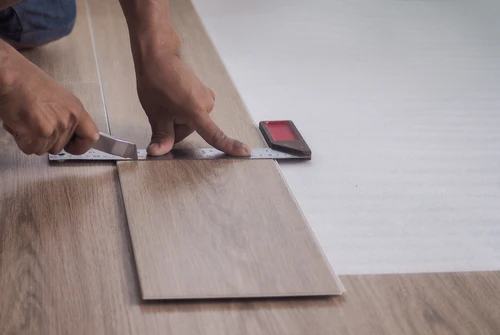Avoid These Vinyl Plank Wholesale Mistakes
Vinyl plank flooring has become one of the most popular choices for both residential and commercial spaces, thanks to its durability, affordability, and stylish design options. For contractors, builders, and property managers, buying vinyl plank wholesale can offer significant cost savings and help maximize project profits.
However, wholesale purchasing comes with its own set of challenges. Without careful planning, you could face unexpected costs, project delays, or dissatisfied clients. To help you avoid these pitfalls, let’s look at the most common vinyl plank wholesale mistakes—and how to steer clear of them.
1. Focusing Only on Price
It’s tempting to choose the lowest-priced option when buying wholesale, especially when you’re working on large-scale projects. But the cheapest vinyl plank flooring isn’t always the best value. Low-cost products may:
- Wear out faster.
- Have weaker click-lock systems.
- Offer limited warranties.
For example, a flooring option that costs $0.30 less per square foot might seem like a bargain, but if it needs replacing five years earlier than a higher-quality product, you’ll spend more in the long run. Always weigh price against durability, warranty coverage, and long-term performance.
2. Not Checking the Wear Layer Thickness
The wear layer is the transparent top coating that protects vinyl plank flooring from scratches, dents, and stains. In wholesale purchases, some buyers overlook this detail, focusing only on the style and price.
As a rule of thumb:
- 12 mil wear layer: Suitable for low-traffic residential areas.
- 20 mil+ wear layer: Recommended for high-traffic commercial spaces.
Choosing a product with too thin a wear layer for the intended use can lead to premature wear and unhappy clients.
3. Ignoring Supplier Reputation
Not all wholesale suppliers are created equal. Choosing the wrong vinyl plank wholesale partner can lead to issues like:
- Inconsistent product quality.
- Long lead times.
- Poor customer service.
Before committing, check:
- Online reviews and testimonials.
- How long the supplier has been in business.
- Whether they offer product samples before bulk orders.
- Their return and replacement policies.
A trustworthy supplier can save you time, money, and headaches throughout your project.
4. Ordering Without Accurate Measurements
Over-ordering wastes money, while under-ordering can delay your project. Wholesale orders are often non-refundable or have restocking fees, so precise measurement is essential.
Pro Tip: Add 5–10% to your measurements to account for cuts, trimming, and installation errors. For example, if your project needs 1,000 sq. ft., order 1,050–1,100 sq. ft. to avoid last-minute shortages.
5. Overlooking Installation Requirements
Not all vinyl plank flooring is installed the same way. Some use glue-down methods, while others use click-lock systems. If your installation crew isn’t familiar with the product type, you risk:
- Slower installation times.
- Poorly fitted planks.
- Higher labor costs.
When buying wholesale, clarify:
- The recommended installation method.
- Whether special tools are needed.
- If the manufacturer provides installation guidelines.
6. Neglecting to Inspect Upon Delivery
One of the biggest mistakes buyers make with vinyl plank wholesale orders is failing to check the shipment as soon as it arrives. Damaged boxes or defective planks can cause project delays if you discover them too late.
Always:
- Inspect boxes for visible damage.
- Open and check a few random planks for defects.
- Report any issues immediately to the supplier for replacements.
7. Not Considering Climate and Subfloor Conditions
Vinyl plank flooring is known for its water resistance, but extreme temperatures or improper subfloor preparation can still cause problems. For instance:
- Excess moisture in the subfloor can lead to mold growth.
- Extreme heat can cause planks to expand or warp.
When ordering wholesale, confirm the product’s specifications and make sure it’s suitable for the installation environment—especially in areas with high humidity or temperature fluctuations.
8. Skipping Warranty Verification
Some wholesale buyers overlook warranty details, assuming all products have the same coverage. In reality, warranties vary widely:
- Residential warranties may range from 10 years to lifetime.
- Commercial warranties are often shorter, sometimes only 5–10 years.
A strong warranty not only protects your investment but also reassures your clients that the flooring is built to last.
9. Failing to Plan for Extra Stock
Styles and colors can be discontinued without notice. If you ever need to replace a damaged plank years later, you may not find the exact match. When buying vinyl plank wholesale, consider purchasing an extra 5–10% of material to store for future repairs.
10. Not Building a Long-Term Supplier Relationship
If you regularly buy wholesale flooring, maintaining a strong relationship with your supplier can bring long-term benefits:
- Priority access to new products.
- Better pricing on repeat orders.
- Faster turnaround times during peak demand.
Treat your supplier as a business partner, not just a one-time vendor.
Final Thoughts
Buying vinyl plank wholesale can be a smart, cost-effective choice for builders, contractors, and property managers. However, avoiding common mistakes is essential to ensure you get the best value, quality, and performance from your investment.
By considering factors like wear layer thickness, supplier reputation, accurate measurements, and environmental conditions, you can prevent costly errors and keep your projects running smoothly.
Remember, wholesale flooring isn’t just about finding the lowest price—it’s about securing the best combination of quality, durability, and long-term value for your business.
